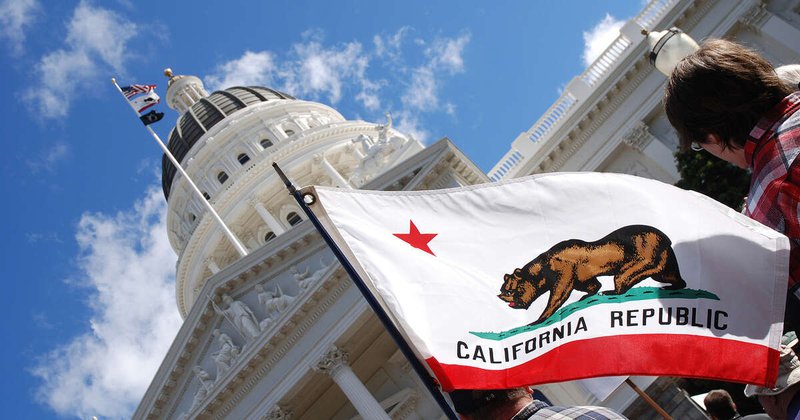California SB 37 will Transform the Legal Lead Generation Business
California's SB 37 transforms the legal marketing landscape, driving lead generation companies out of the market due to new compliance demands. This shift favors large firms with robust in-house marketing, leaving smaller practices struggling and potentially increasing legal service costs for consumers.
California SB 37 will Transform the Legal Lead Generation Business
California Governor Gavin Newsom's signing of Senate Bill 37 in October 2025 sent shockwaves through the legal marketing industry. Sold to the public as consumer protection against deceptive attorney advertising, SB 37 has triggered a mass exodus of lead generation companies, affiliate networks, and marketing aggregators from the nation's most lucrative legal market.
Key Article Takeaways
- SB 37 will force a dramatic restructuring of California’s legal lead generation industry, jeopardizing the model that small firms have depended on to compete with larger practices.
- The law’s requirements create a near-insurmountable compliance challenge for generic lead generation campaigns.
- Many legal lead generation companies may exit the California market due to the risk of high statutory damages and complex regulatory burdens.
- Large law firms with in-house marketing functions will gain an even greater advantage, while solo practitioners and small firms face higher costs and shrinking access to client leads, resulting in fewer choices and higher costs for legal services.
The question isn't whether SB 37 will transform the legal lead generation business when it takes effect on January 1, 2026. It's whether that business, as currently structured, will survive at all
SB 37: The Promise vs. The Reality
On its surface, SB 37 seems eminently reasonable. The bill prohibits misleading attorney advertisements, bans attorneys from touting fake awards purchased from dubious organizations. The law also includes a private right of action that allows consumers to sue violators for $5,000 to $100,000 per violation, thus empowering those victimized by an attorney’s deceptive marketing. How could anyone seriously object to protecting vulnerable accident victims from false promises?
But beneath this consumer-friendly veneer lies a far more consequential restructuring of California's legal marketplace, one that systematically dismantles the infrastructure small and mid-sized law firms have relied upon for over a decade to compete with large, established practices.
The Legal Lead Generation Ecosystem
To fully understand the potential impact of SB 37 requires a basic understanding of the legal lead generation ecosystem and its three key participants.
Affiliates: At the base are individual marketers, website operators, and content creators who generate traffic through SEO, paid ads, social media, and content marketing. These affiliates capture information (names, contact details, case facts) from people seeking legal help in the form of leads.
Aggregators: In the middle are companies that collect leads from multiple affiliates, qualify them, and distribute them to individual attorneys and firms. These include major players like LegalMatch and Nolo, along with hundreds of smaller aggregators that provide technology, compliance oversight, and market access.
Attorneys: At the top are the attorneys who purchase qualified leads, typically paying anywhere from $50 to $500+ per lead depending on case type, location, quality, and exclusivity.
While many decried this model as degrading to the dignity of the legal profession (such as it is), in fact it democratized legal marketing. Thanks to this structure, a small firm or sole practitioner just starting out could build a practice with just a small marketing budget and could compete against large firms spending tens of thousands on banner ads, billboards, and television commercials. While far from perfect, few could deny that the system broadened access to legal representation. At least it did.
The SB 37 Compliance Trap
SB 37 introduced a seemingly minor requirement that is fatal to the affiliate-aggregator model: every attorney advertisement must identify "the name of at least one lawyer licensed to practice law in California" and "the city, town, county, or address of at least one bona fide office location."
The problem is the companies that operate the websites and run the social media ads to generate lead traffic aren’t running campaigns for any particular attorney or firm. Instead, the content that drives the traffic is provider-neutral, meaning that it focuses on a specific legal service, such as personal injury, mass tort litigation, or bankruptcy, rather than the attorney providing it.
In fact, lead generators usually have no idea which attorney may ultimately receive the leads they generate. In many cases, that is determined by an aggregator, which sends the lead to one or more attorneys after further qualification.
That means that lead generators simply cannot comply with SB 37's requirements, because they don't have a specific California attorney to name, or an office location to list. And if they guess wrong or use generic placeholders, they face penalties ranging from $5,000 to $100,000 per violation.
In other words, a single social media post that generates 50 leads without proper attorney identification could theoretically trigger up to $5 million in liability for both the affiliate and the hapless attorney who purchases the leads.
The SB 37 Referral Dilemma
Under SB 37, lead generators and aggregators face an impossible choice. If they want to operate a website that touts legal services without mentioning a specific attorney or firm, they must choose among the following unsavory options:
Get Certified as a State Bar Lawyer Referral Service. This option requires extensive regulatory compliance, including maintaining panels of at least 20 attorneys (10 from separate firms), tracking detailed records of every referral, submitting to State Bar audits, and ensuring panel members carry errors and omissions insurance in amounts specified by the State Bar. Most lead generation companies are technology platforms, not bar-certified referral services, and the certification process is expensive, time-consuming, and restrictive.
Pre-Assign Leads to Specific Attorneys. This eliminates the aggregator model's core value proposition. If leads must be pre-assigned, firms lose the flexibility to selectively purchase leads based on current capacity, case type preferences, and quality assessments. It also creates logistical nightmares around refunds, replacements, and compliance verification.
Exit California Entirely. For most lead generators and aggregators, this has become the only viable path forward.
SB 37’s True Beneficiaries
While sole practitioners and small firms will soon be scrambling to replace lost lead sources once SB 37 takes effect, California's largest firms have nothing to worry about. In fact, they stand to profit enormously, because they never relied on the legal lead generation marketplace to begin with. Instead, major firms operate their own sophisticated marketing infrastructure. Many of them have in-house advertising teams with multi-million-dollar budgets to conduct direct response campaigns, along with television, radio, and billboard advertising. And you can be certain every one of those ads will be SB 37 compliant.
The Consumer Attorneys of California (CAOC) whose members include some of the state's largest plaintiff's firms, served as bill’s the primary sponsor, and it was introduced without fanfare. In fact, no organized opposition appeared on record, despite the bill's profound industry impact.
When Senate Bill 37 takes effect, firms like Morgan & Morgan, Jacoby & Meyers, and other CAOC will not have to change a thing, because their advertising already featured their own brands and attorney names, and their smaller competitors, who depend on affordable leads from affiliates and aggregators, will find their client pipelines drying up.
It is nothing more than market consolidation disguised as regulation. By eliminating the lead generation infrastructure that allowed smaller firms to compete, SB 37 effectively creates a two-tier market: large firms with in-house marketing capabilities, and everyone else.
The Enforcement Weapon: Private Rights of Action
Perhaps SB 37's most revolutionary feature isn't what it prohibits, but how it's enforced. Attorney advertising in California has always been regulated by the State Bar and enforced through disciplinary proceedings against offending attorneys. However, unlike traditional State Bar discipline, SB 37 creates private rights of action allowing consumers to directly sue attorneys, lead generators, and aggregators for $5,000 to $100,000 per violation, plus attorney’s fees.
This provision makes SB 37 a plaintiff's attorney's dream: a statute with statutory damages up to $100,000, attorney's fee shifting, and broad liability triggers. Expect a cottage industry of SB 37 enforcement litigation to emerge, targeting both attorneys and the marketing companies that serve them.

What Happens Next?
The legal lead generation industry in California will likely fracture into three distinct groups:
The Exiters: These are companies that leave the California market because liability exposure exceeds any potential profit. If you're a California consumer searching for legal help on many lead generation platforms, you'll soon see "Service unavailable in your area" messages, if you aren’t already. National aggregators like LegalMatch and others are already blocking California traffic.
The Adapters: Some firms will attempt to navigate SB 37's requirements by becoming State Bar certified referral services. Others might create exclusive pre-assignment systems or limit their California operations to white-label arrangements with individual law firms. This path is expensive and operationally complex, eliminating much of the cost efficiency that made lead generation attractive.
The Innovators: As with any new law, there are those who view SB 37 as an opportunity. With competition reduced, firms willing to invest in compliant direct-response advertising can dominate their markets at lower cost-per-lead than ever before as competitors exit the market.
While options exist for lead generators and aggregators, the solo practitioners and small firms that relied on them will face an existential crisis when SB 37 takes effect. They must either build in-house marketing capabilities they previously outsourced, or somehow dramatically increase their marketing budgets to compete with large firms. Many small firms simply lack the capital to pivot, meaning California is likely to see significant consolidation in the plaintiff's bar over the next 2-3 years.
Proponents argue consumers benefit from SB 37 because they'll no longer encounter misleading legal advertisements or fake awards. While the law will reduce certain types of deceptive marketing, there’s another side to the story.
When you reduce competition and limit marketing channels, consumers suffer. Fewer firms advertising means less awareness of available options, and market consolidation generally leads to increased fees as competitive pressure decreases. Small firms that historically served middle-class and working-class clients may exit the market entirely, all to the detriment of the consumers they served.
The irony is that while SB 37 protects consumers from misleading ads, it may simultaneously make legal services less accessible and more expensive for those same consumers.




